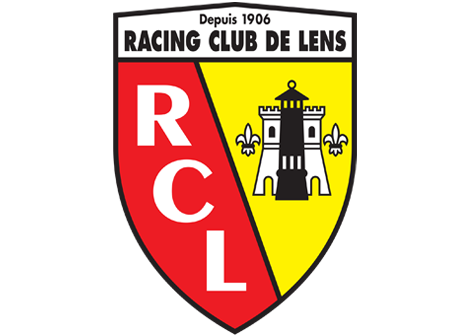TransferRoom’s xTV evaluates a player’s worth not just on ability but on economic factors, contract status and similar historical transfers - giving clubs and agents a real-time, real-world valuation to support smarter decisions.
Rather than being purely an indicator of player ability, xTV is a measure of the value of the player's registration to the club they are currently playing for, under free market conditions. It is designed to capture the intersection of what price the selling club could achieve for the player AND what price a buying club should expect to be paying.
Daniel Blades, TransferRoom’s Director of Data Intelligence, answers questions about how Expected Transfer Value works, why it is a game-changer for the football industry and how it can help decision-makers do better business. A link to a webinar on xTV can be found at the bottom of the page.
Q: What is Expected Transfer Value (xTV)?
A: A player’s xTV is a prediction of what it would cost to sign the player permanently, expressed as a range.
Q: How is it different from other measures of player value?
A: A lot of other player value calculations are based solely or mainly on assessments of the individual’s ability. Rather than being purely an indicator of player ability, xTV is a measure of the value of the player's registration to the club they are currently playing for, under free market conditions. It is designed to capture the intersection of what price the selling club could achieve for the player AND what price a buying club should expect to be paying.
Q: What additional factors go into calculating xTV and making it a better reflection of a player’s actual value?
A: The elements that make xTV different and more reliable can be broken down into three areas:
1. Assessment of economic value, based on factors in addition to playing ability;
2. Benchmarking against the transfers of relevantly similar players;
3. Use of data unique to provide a picture of current market conditions.
Q: What other information about the player is taken into consideration?
A: Playing ability, based on performance data and the level of the player’s current club, is clearly important. But xTV also applies mathematical values to other factors, including:
• Player details - age, position, national caps etc
• The financial strength of their parent club
• Time remaining on the players' contract (including any options)
• Historical fees paid for the player
• The potential buying market for the player
To give our users real-world insight into player value, xTV takes into account factors that have clearly driven transfer fees historically, rather than having an opinion on which factors should or shouldn't be important.
For example, it might be debatable that a player having a number of national caps should make them better / more attractive than one without, but clearly this has increased the price paid for players in the past (independent of other factors), so we include it.
Q: How does benchmarking work?
A: Other models will use traditional mathematical models to assign a value to each attribute of a player, and aggregate them to find their total value. The xTV incorporates elements of this, but also relies heavily on an assessment of the fees paid for "similar" players, which reflects closely how clubs make buying/selling pricing decisions and gives our values a more intuitive feel.
For an xTV to be reliable and useful to decision-makers, it must reflect take account of historic deals for players who had similar attributes and were in similar situations at the time.
Q: Can you give a real-life example?
A: To value Brighton defender Lewis Dunk, for example, we would start by looking at historical transfer fees paid (plus any equivalent platform activity) for late-peak age centre backs from Premier League clubs, with 2+ years left on their contract.
Depending on how big the sample is, we might expand or tighten our criteria. So we find the following benchmarks:
• Smalling - Man Utd to Roma €15m
• Felipe - Porto to Atletico €20m
• Kouyate - West Ham to Palace €10.7m
• Jonny Evans - WBA to Leicester €4m
• Hector - Chelsea to Fulham €5.9m
There are many other deals that are less close to Dunk’s current situation. In reality, none of the above is identical, so each historical transfer is given a “similarity score” that is fed into the calculations to weight the final xTV.
Q: So it’s like what happens on property websites?
A: Precisely - a real-life inspiration for this is buying (or selling) a house. To get an idea of a fair price, you go on to a site like Zoopla or Rightmove and can look at historical sales in any given postcode.
By looking across a number of recent examples you arrive at a reasonable value range for the type of property you are interested in. This is essentially how our algorithms work for valuing players.
A key advantage of this approach is that it reacts swiftly to market forces - e.g. the knock-on effect of a big transfer fee for a certain player inflating the market.
Q: How does TransferRoom use its own data to calculate xTV?
A: Using information from the platform itself is what makes xTV unique. Benchmarking relies on transfers that have actually happened, but what about deals that are explored but never completed?
TransferRoom analysts have access to every pitch, every declaration of interest and every player made available. That gives us valuable information about the way decision makers view players of different characteristics, which we can pass on to our users by using the data to fine tune xTV to be as predictive as possible.
Q: How reliable is an Expected Transfer Value (xTV) and how might it affect a selling club’s position?
A: A player’s xTV is a value range, rather than a single figure. To return to the real estate comparison, property websites tend to offer value ranges and happily acknowledge they are estimates that provide a credible starting point for negotiations, not a definitive figure.
We do not believe that xTV disadvantages the selling club. We display a range of comparison players which allows them to benchmark the value of their player against the market and helps them find an appropriate buying club by matching xTV with the budget of potential buying clubs. TransferRoom exists to provide its users with the best possible information – how they use it is up to them.
Q: The very best players, such as Kylian Mbappe and Erling Haaland, all seem to have an Expected Transfer Value (xTV) of €75m or more. Why don’t the figures differentiate players at that level?.
A: It is possible to predict how much Haaland or Mbappe might cost, but their exceptional talent - and the related fact that it will be hard to benchmark against similar transfers - makes it harder to narrow the range of potential fees.
In general, top-end deals are a poor representation of the vast majority of the market. The fee for these players is largely dictated by the identity of the buying club(s), bidding wars and negotiations with executives and agents. There's often very few or zero alternatives to these players for the buying club, and therefore they must pay the advertised price.
But everywhere else, the transfer market operates much more efficiently, with ample supply of players of any given profile meaning that prices should be fair and more predictable.
TransferRoom’s Expected Transfer Value (xTV) figures are price ranges rather than absolute values, with the ranges relatively tight below €10m and wider after that.
We are confident that anomalies are rare and welcome feedback that will help us to adapt and improve our methodology.
Q: So, in summary, how does xTV help TransferRoom members?
A: The xTV feature provides both buying and selling clubs with the appropriate information to make an informed decision. Having access to reliable and fair expected player transfer values helps decision-makers at every stage of the process, from initial assessments of the feasibility of a deal through to negotiations and the agreeing terms. Clubs can also use the xTV feature to track the economic value of their playing assets and ensure they are protected and trending in the right direction.
Agents can also benefit significantly from the xTV feature. By knowing the potential value of their clients and being able to compare it relevantly similar players, intermediaries can make better informed decisions about which players to pitch to which clubs.
Player xTVs sit behind all of the smart recommender functions of the platform, ensuring users receive relevant suggestions based on high quality, up-to-date analysis. We want our users to feel like a financial trader accessing Bloomberg: they have access to real-time, in-depth reliable information to help them make the best possible decisions.
The new xTV feature gives them the most credible data about the most fundamental consideration in a transfer deal: how much a player is worth.
Watch a TransferRoom webinar explaining how xTV works by visiting: https://www.transferroom.com/xtv-webinar
Book an intro call
Trusted by decision makers from 800+ clubs worldwide















































































/SWEDEN/Malm%C3%B6%20FF.png)





































